The Sustainable Development Goals (SDGs)
Good health. Clean water. Zero hunger. Quality education. Decent work. No poverty. Millions of us take these privileges and rights for granted. For billions more, they remain elusive dreams.
These and the other United Nations Sustainable Development Goals (SDGs) - 17 in all - form the heart of Agenda 2030, which promises peace and prosperity for people and the planet. Collectively they represent an urgent call to action all world citizens must heed before it’s too late.
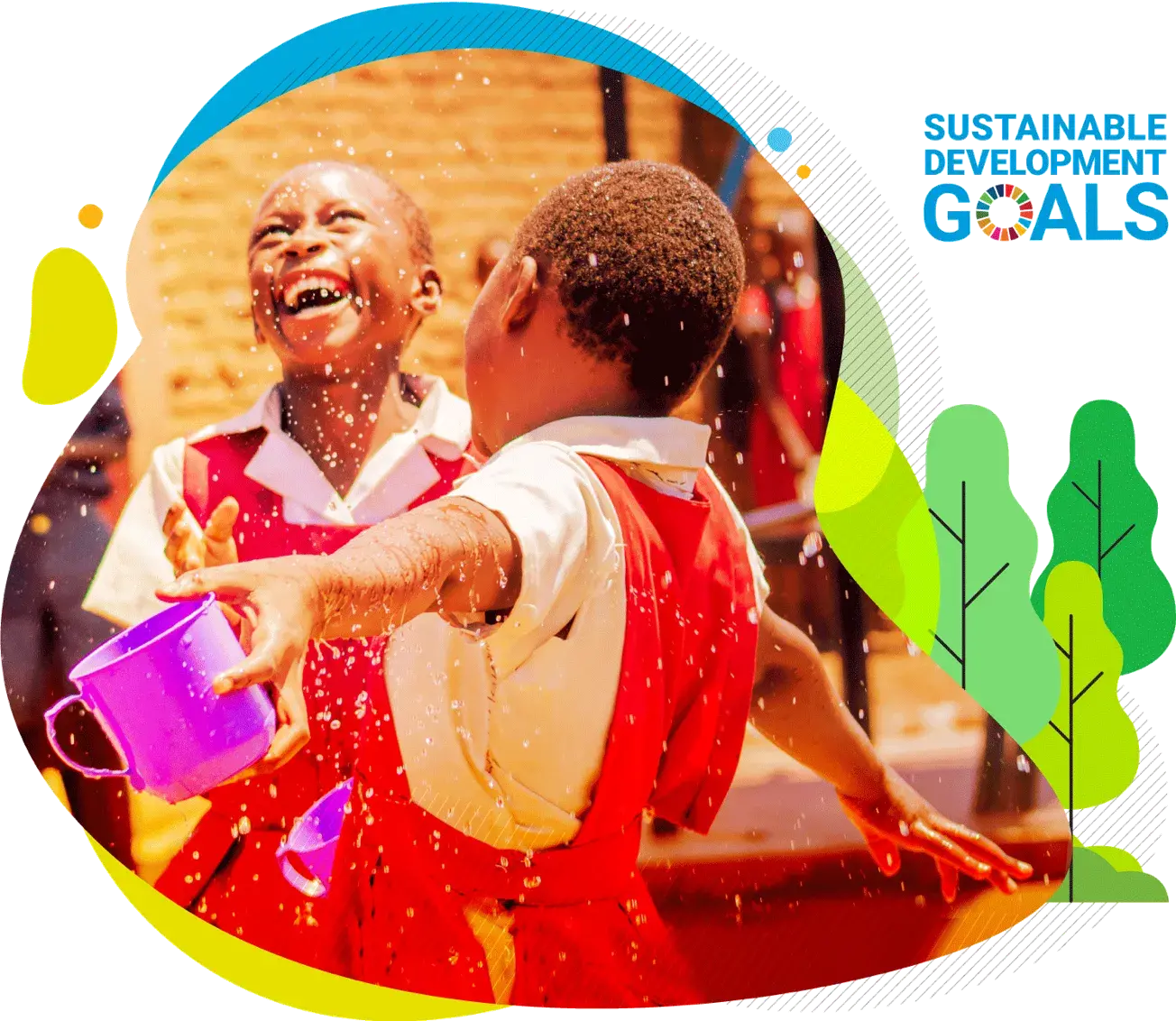
The “Faith4SDGs” Project - SDG
To show the importance of global partnerships in achieving these goals, KAICIID is releasing the #Faith4SDGs project: a digital storytelling series that shows the enormous contributions faith-based organizations (FBOs) and other religious actors around the world are making to implement the SDGs. We’ll bring you through alleys and valleys, to villages and cities, inside homes, classrooms, businesses, and houses of worship to witness first-hand how FBOs and religious institutions are working to make those out-of-reach dreams – those privileges and rights many of us enjoy – a reality for everyone.
All of us, regardless of faith, have an important role to play in advancing sustainable development. We hope these stories inspire you and your community to join us in achieving a better and more sustainable future for all.
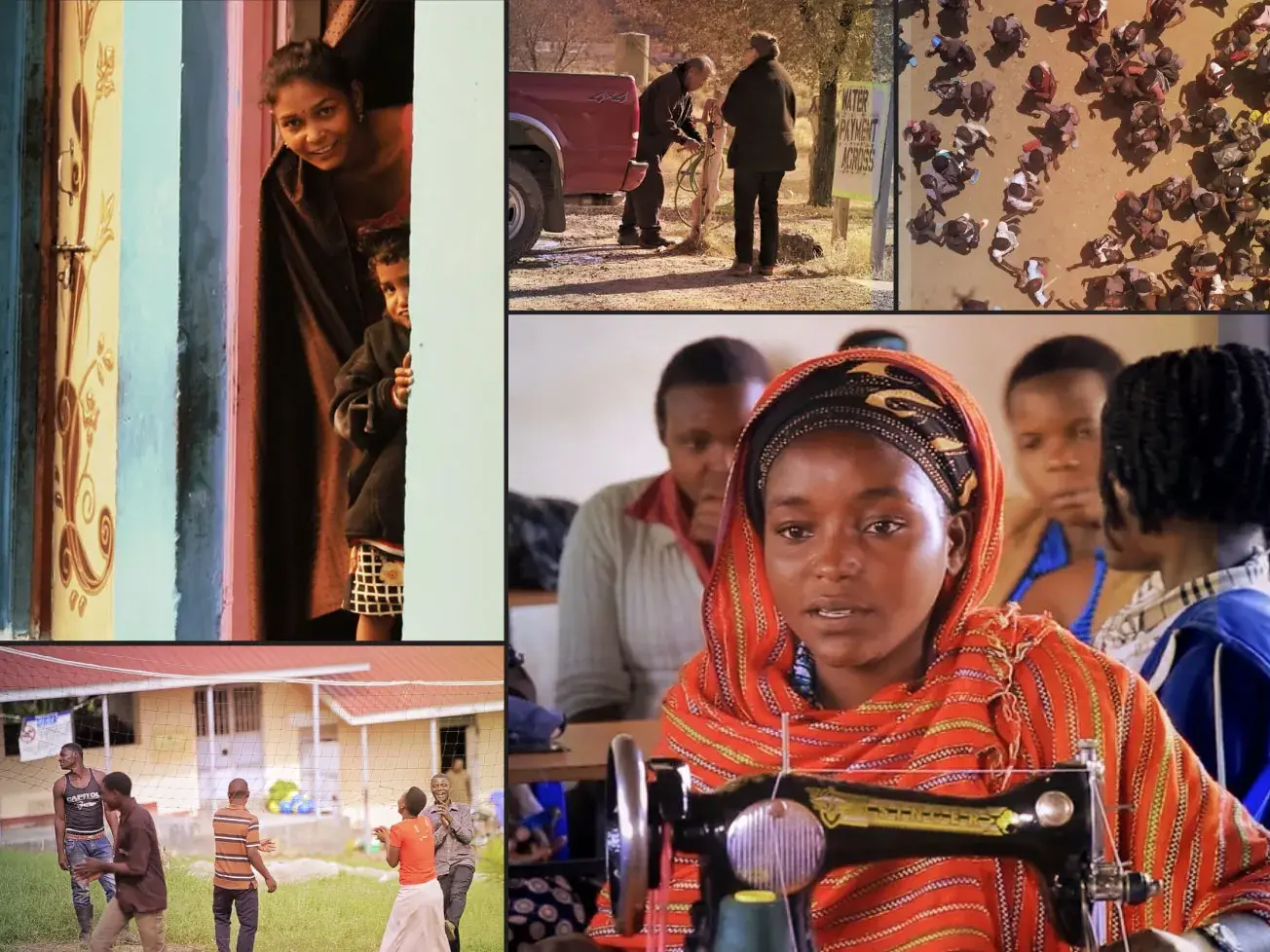
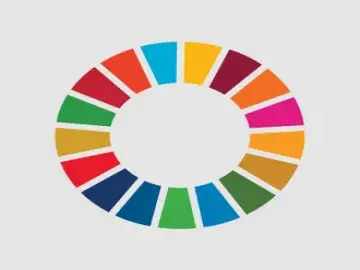
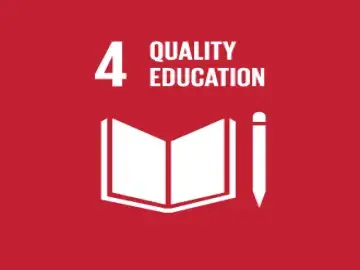

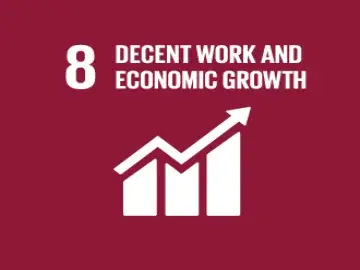
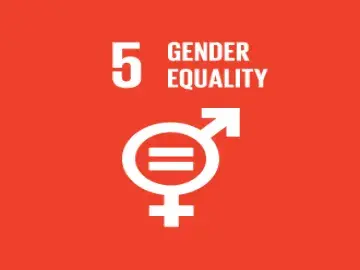
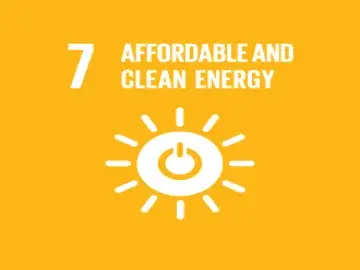
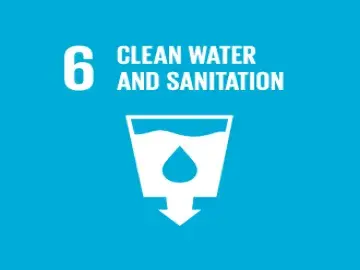
“Over 80 percent of the world’s population identifies with a spiritual tradition. If we truly want to motivate individuals to collective action across sustainable development, we need to tap into the common values of faith, which advocate care for people and the planet.”
- Faisal Bin Muaammar, KAICIID Secretary General
Although governments and secular civil society organizations have important roles to play in achieving these economic, social, and environmental goals, they can’t do it alone, nor should they. The only way we can truly succeed and leave no one behind is by harnessing the unique strengths religious leaders and communities bring when addressing these complex global challenges.
Faith communities make significant contributions to humanitarian aid, health care, education, poverty eradication, and environmental protection wherever the need is greatest. They move trillions of dollars and help billions of people the world over, improving social justice, human rights, and sustainable development across political and physical borders. As a result of this good work, FBOs have long been considered experts in the field of sustainable development and are vital partners in implementing the SDGs.
FBOs and their networks have established a critical level of trust and legitimacy in their local communities. Because of this, they are uniquely positioned to further sustainable development in ways that other organizations cannot.
FBOs have been advancing the SDGs’ underlying principles for decades, long before they were formally set in 2015. In Uganda, Finn Church Aid equips young people with job training and courses in micro-entreprenuership (Goal 4: Quality Education). In India, Bodhicitta Foundation embraces Buddhist teachings to end child marriage by providing girls of all faith backgrounds with housing, accommodation, and education (Goal 5: Gender Equality). In Malawi, Khalsa Aid follows the Sikh principle of serving humanity to help rural communities create sustainable water sources (Goal 6: Clean Water and Sanitation). In the United States, New Mexico Interfaith Power and Light mobilises faith communities to install solar panels in communities which lack access to electricity (Goal 7: Affordable and Clean Energy). In Mexico, Habitat for Humanity volunteers are guided by the Christian principles of service, respect, and “love in action” as they build adequate housing for families whose lives have been devastated by natural disasters (Goal 11: Sustainable Cities and Communities).
These noteworthy initiatives (and countless more) are emblematic of the sustainable development efforts FBOs and religious institutions are working to implement in every country. In many cases, FBOs play a vital intermediary role between donor and recipient communities, bridging trust and culture gaps with compassion and local knowledge to meet critical needs.
Quality education promises today’s youth a better tomorrow. It prepares them with the necessary skills to create positive change that will advance sustainable development for years to come. Yet for more than a billion people, this fundamental human right remains out of reach.
Even before the COVID-19 pandemic wreaked havoc on global education and exacerbated inequalities between rich and poor countries and households, more than 750 million adults remained illiterate and more than 250 million children were out of school. More than half of those in school were not meeting minimum proficiency standards in reading and maths.
COVID safety concerns have forced schools to close for 90 per cent of the world’s students. At least 500 million educationally displaced youth still lack remote learning capabilities due to the digital divide and other structural disadvantages. The UN estimates that more than 200 million children will still be out of school by 2030.
This mass exclusion has a profound negative impact on learning outcomes and the social and behavioural development of children and young people, especially those living in remote areas, extreme poverty, fragile states, refugee camps, and other vulnerable communities. The adverse effects of inadequate education last a lifetime and often spill over into future generations, severely limiting human potential.
Goal 4 aims to ensure inclusive and equitable quality education and promote lifelong learning opportunities for all. To succeed, UN bodies and partners are working with local communities to ensure that all children have access to early childhood development, care, and pre-primary education and that they go on to complete free primary and secondary school. Thereafter all learners should have equal access to affordable and quality technical, vocational, and tertiary educational opportunities where they can develop relevant skills for decent employment. Along the way they should acquire the knowledge and skills needed to promote sustainable development. Achieving these targets will require better schools with better facilities, more scholarships, and more qualified teachers. This should result in improved literacy, numeracy, and parity among learners.
UNICEF estimates that faith communities operate half of the world’s schools, most crucially in hard to reach places where governments are unable to provide for poor and vulnerable youth. This steadfast commitment demonstrates the critical role faith-based organizations and religious institutions play in advancing children’s rights and enhancing their well-being through education.
One prominent faith-based group leading this effort is Arigatou International. Arigatou uses interreligious dialogue and cooperative action to safeguard children’s rights. In 2000 they launched the Global Network of Religions for Children (GNRC), an interfaith coalition of organizations and individuals that represents the world's major religions and spiritual traditions. GNRC leads more than 200 projects in 70 countries, all of them aimed at giving children a chance to shine. In partnership with GNRC members, Arigatou worked with UNESCO and UNICEF to develop Learning to Live Together. This ethics education programme helps children understand and respect people from diverse religious and cultural backgrounds and promotes core ethical values including empathy, responsibility, and reconciliation.
Alongside interreligious organizations implementing Goal 4 are numerous faith-specific groups, many of which promote quality education as a means to advance other related goals.
Buddhist Global Relief strives to relieve chronic hunger and malnutrition worldwide. In many areas where they serve, inadequate access to education exacerbates hunger and perpetuates the cycle of poverty, especially for girls and young women. Buddhist Global Relief provides schooling, scholarships, housing, nutritious meals, uniforms, desks, and other school supplies to children in India, Vietnam, Thailand, Uganda, Cameroon, Nicaragua, and Peru. Their work near Lima supports the daughters of domestic workers with material and psychosocial support to keep them in school and out of child labour. Their work on the Thailand-Myanmar border supports the children of medics who risk their lives delivering healthcare to persecuted ethnic minorities.
Muslim Global Relief works to lift rural communities out of poverty and help them build stable and secure livelihoods in remote villages across Africa, Asia, and the Middle East. Their Education for Everyone Programme builds schools, trains teachers, and provides textbooks to improve the lives of hundreds of thousands of children in these regions. Muslim Global Relief also works to bring struggling schools up to international standards. In Gaza they provide Palestinian children with educational materials and install water storage solutions to keep schools and orphanages open and safe.
The Lutheran World Federation is a global communion of churches representing 77 million Christians in 99 countries. The Federation collaborates with interfaith actors and religious leaders to support local communities and authorities in improving school infrastructure and teaching capacities. They also support vocational training schemes for young people and other vulnerable groups, all with an eye to promoting social cohesion and peaceful co-existence.
KAICIID works to achieve similar objectives, offering educational courses and activities that teach people about interreligious dialogue as a means to transform conflict into peace and reconciliation. The Centre’s Dialogue Knowledge Hub and Peacemap offer online research tools that allow stakeholders to share best practices for using dialogue to advance educational and other sustainable development goals.
These and countless other examples demonstrate the important role faith-based organizations and religious institutions play in implementing Goal 4. As forebearers of the modern school movement and some of the earliest institutions to offer basic schooling for girls, faith-based education providers continue to light the way towards inclusive and equitable quality education and lifelong learning opportunities for all.
 The Role of Faith in Disaster Relief and Affordable Housing
The Role of Faith in Disaster Relief and Affordable Housing
Cities unlock human potential. They expose us to diverse ideas and beliefs that expand our perception of what’s possible. They catalyse collaborations that advance cultural and economic innovation. They represent opportunity, the dream of a better life, but cities also create new problems all their own.
In 2008 the number of people living in urban areas eclipsed the number in rural environments for the first time in history. By 2050 an estimated two-thirds of the global population -- billions more people -- will live in cities. This rapid urbanisation is overcrowding slums and informal settlements, which are already home to more than a billion people worldwide, and straining city services and infrastructure. Most slum dwellers work in the informal sector and lack adequate housing, running water, sanitation, waste management systems, public transport, and healthcare facilities. These poor conditions have made them particularly vulnerable to COVID-19’s devastating effects.
Overcrowding and congestion also create air pollution, which causes more than four million premature deaths each year, and urban sprawl, which threatens local environments. Open public spaces such as parks and beaches are vital for our physical and mental health but represent only a small fraction of most cities’ allocated land. The open spaces that do exist are often difficult to reach by foot and even by public transport, which only half of urban dwellers can conveniently access.
Urbanisation clearly has shortcomings, but there’s reason for hope. If we design and implement coordinated development policies before it’s too late, we can still create sustainable change that benefits urban majorities and all living creatures alike.
Goal 11 aims to make cities and human settlements inclusive, safe, resilient, and sustainable. To succeed, UN bodies and partners are working with local communities to ensure universal access to adequate and affordable housing, transport, and other basic services. This means upgrading slums using resource-efficient and locally sourced materials, expanding public transport, and improving waste management and air quality. Goal 11 also aims to safeguard cultural and natural heritage, increase access to green and public spaces, and reduce the negative effects of disasters. Delivering these targets requires democratic input to ensure that local solutions meet communities’ needs.
Religious institutions and faith-based organizations understand that adequate shelter is a basic human need and a prerequisite for enjoying other rights. As such, they have long provided safe housing solutions for vulnerable communities and led disaster relief efforts around the world.
The International Red Cross and Red Crescent Movement is a global humanitarian network that helps vulnerable people facing disaster meet their needs and improve their lives. Movement members bring relief supplies, medical services, shelter, and comfort to families traumatised by crises and conflicts. They also empower at-risk communities with lifesaving skills and help them create emergency plans to stay safe.
The Buddhist Compassion Relief Tzu Chi Foundation works to mitigate disasters wherever they strike. Its volunteers rebuild homes, schools, hospitals, and houses of worship, providing critical shelters where families and communities can sleep, learn, heal, and pray. Tzu Chi encourages recycling to improve the sustainability of waste management systems and operates thousands of stations that transform plastic bottles into blankets, clothes, and medical gowns that are used in the foundation’s disaster relief efforts.
DanChurchAid helps millions of people lead dignified lives. The Danish humanitarian organization provides emergency relief in disaster-stricken areas and long-term development assistance in poor regions to help communities manage risks and adapt to the effects of climate change. They work closely with local partners to ensure that communities actively participate in building their own resilience. When the Beirut explosion in August left 300,000 people homeless, DanChurchAid stepped in to provide shelter, food, hygiene kits, psychosocial aid, and money to cover basic needs.
DanChurchAid is a member of the ACT Alliance, a global coalition of faith-based organizations and churches that works in 140 countries to combat poverty, support survivors of disasters and conflicts, help people adapt to climate change, and safeguard human rights. ACT Alliance members including the Lutheran World Federation helped rebuild hundreds of homes in Nepal after earthquakes flattened entire villages in 2015. Another ACT Alliance member, the Church’s Auxiliary for Social Action (CASA), provides shelter, food, and safe drinking water to flood victims in India.
Muslim Aid responds to natural disasters and crises in more than 70 countries, building safe homes for victims, vulnerable widows, and orphans. These homes contain resource-efficient and locally sourced materials that adapt well to the surrounding environment. In many cases villagers build the foundations of their homes and Muslim Aid completes the rest of the construction, giving local communities agency and ownership.
Access to safe and affordable housing is necessary for families and communities to flourish. Habitat for Humanity International works in 70 countries to provide millions of people in need a decent place to live. These efforts have made it the largest not-for-profit builder in the world. Habitat prioritises energy efficiency and sustainability in its work, resulting in green homes that incorporate innovative approaches to ventilation, natural light, water, and sanitation.
The vast majority of faith-based organizations that provide disaster relief services and work to build sustainable cities and human settlements vow to help everyone in need, regardless of faith affiliation or background. They also collaborate interreligiously and with secular development agencies to best serve humanity. This inclusive and cross-sector approach is vital to achieving Goal 11 and ensuring that everyone can enjoy safe and sustainable living conditions.

Decent work brings meaning to our lives. It gives us structure, dignity, and purpose. It strengthens our sense of community and encourages us to act morally for the greater good. When we lose meaningful work or fail to find it, many of us lose our way.
Even before COVID-19, the global labour force participation rate for women between the ages of 25-54 was only 63 per cent compared to 94 per cent for men, according to statistics collected by UN Women. More than 2.7 billion women are legally restricted from having the same choice of jobs as men and only 58 per cent of women worldwide have access to a bank account. Many women also lack recourse to legal protection over workplace harassment and discrimination, and only 40 per cent of women worldwide have social protections like pensions, unemployment benefits or protected maternity leave.
Additionally, 22 per cent of young people are not in employment, education, or training. The global pandemic has further diminished their prospects and disrupted labour markets around the world. 500 million full-time jobs or their equivalent were lost in the second quarter of 2020. In the informal economy, 1.6 billion workers’ livelihoods still hang in the balance. This ongoing economic and social disruption has disproportionately affected women, risking progress made on gender equality in recent decades and profoundly threatening the long-term prosperity and wellbeing of vulnerable communities everywhere.
In times of crisis and uncertainty, meaningful employment offers resilience and hope. Decent work can also be a catalyst for social cohesion and peace. With public health top-of-mind, faith-based organizations and religious institutions have critical roles to play in safely getting people back to work and advancing Goal 8.
Goal 8 aims to promote sustainable and inclusive economic growth, full and productive employment, and decent work for all. Sustainability here means increasing resource efficiency in consumption and production and decoupling growth from environmental degradation. Inclusivity means equal opportunity and equal pay for work of equal value. It also means supporting entrepreneurs and small enterprises with access to financial services and markets. To succeed, UN partners are working with governments and communities to achieve higher levels of productivity through diversification and technological innovation. Meeting the Goal 8 targets requires us to protect labour rights, promote safe and secure working environments, and eradicate modern slavery, human trafficking, forced labour, and child labour.
Faith-based organizations and religious institutions have long worked together to advance these goals. In early 2019 prominent faith actors that champion economic justice as a moral imperative convened at the UN headquarters in New York to discuss financing for sustainable development. The meeting centred around the concept of an Economy of Life that prioritises people over profits and embraces sustainable resource management.
The global grassroots interfaith network United Religions Initiative co-organized the event. URI’s economic opportunity projects empower vulnerable communities to exercise their employment rights with dignity. In Nigeria, URI and its partners defend small farmers from corporate giants who try to take their land. In India, they provide legal aid and job training to exploited tribal women. In the Africa Great Lakes region, they help break the cycle of poverty by enabling women to pursue careers.
The Salvation Army’s International Social Justice Commission attended the Economy of Life summit and followed up by launching its Fight for Freedom strategy to end modern slavery and human trafficking. The campaign supports survivors and addresses the root causes of these evils. World Vision focuses its economic empowerment strategy on the related goal of ending child labour and exploitation. The Christian organization promotes sustainable employment opportunities and market systems that help poor families become economically self-reliant so their children can study instead of work. When families build productive and resilient livelihoods, they go from merely surviving to thriving with dignity. World Vision also strengthens financial inclusion through increased access to markets, savings groups, and microfinance services.
Faith-based organizations act as leading microfinance providers in many of the world’s poorest communities. Catholic Relief Services’ microfinance programmes encourage clients to save and invest in income-generating microenterprises, helping poor households and communities create sustainable growth. Their approach has created economic opportunities for millions of people in dozens of developing countries. Islamic Relief USA uses donations as microfinance loans to help beauticians, embroiderers, shop owners, and other entrepreneurs in Pakistan start and grow their businesses. When recipients repay their loans, that same money is reused to help lift other people out of poverty.
The Coptic Evangelical Organization for Social Services works to economically empower disadvantaged Egyptians --particularly women, at-risk youth, and people with disabilities -- using sustainable development practices. Their technical and administrative skills training courses boost job-seekers’ employability and connect them with decent work. CEOSS also issues thousands of microloans to help poor Egyptians build economic projects that provide them and others with meaningful employment. Unlike traditional loans, these come with ongoing practical support, enabling recipients to advance their own interests and rights.
Digni unites 20 Norwegian mission societies and churches that work against poverty. Their economic empowerment projects support skills training institutes and entrepreneurship centres that prepare disadvantaged groups for employment around the world. Norwegian Church Aid’s Climate Smart Economic Empowerment programme helps small-scale food producers lift themselves out of poverty by increasing their access to equipment, finance, and markets, which in turn increases revenue and job opportunities, particularly for women and youth. ACT Alliance brings together 130 Protestant and Orthodox churches and organizations in more than 120 countries to create positive and sustainable change for poor and marginalised people. They address systemic poverty by training farmers in sustainable agricultural techniques that boost community resilience.
These faith-based organizations and religious institutions are so successful in creating meaningful jobs, improving labour market conditions, and reducing poverty around the world because they are motivated by social and economic justice above profit. As true believers in the Economy of Life, faith actors empower the world’s poorest communities and are vital partners in promoting sustainable and inclusive economic growth and decent work for all.

Religion and Gender Equality: Promoting Sustainable Development for All
Women hold up half the sky, yet their contributions to society remain undervalued and their basic rights restricted around the world.
Women and girls are routinely denied equal access to education, health care, decent work, and fair wages. These barriers to opportunity help explain why only about one in four national parliament seats and managerial positions are held by women, leaving their views and concerns woefully underrepresented in decision-making processes. Taken together, the social, economic, and political inequalities that limit women’s potential have undeniably hindered our ability to achieve sustainable development.
One of the biggest obstacles to gender equality is early marriage, which disproportionately affects girls. In 2019, one in five young women was married in childhood. At least 1.5 million girls under the age of 18 get married in India each year, accounting for a third of the world’s child brides. Child marriage violates children’s rights and puts them at higher risks of violence, exploitation, and abuse. For most child brides, marriage also means the end of formal education, severely crippling their ability to develop knowledge and skills needed to help lift their families and communities out of poverty.
Goal 5 aims to achieve gender equality and empower all women and girls. Success means eliminating discrimination, violence, and other harmful practices that affect them including trafficking, exploitation, genital mutilation, and early/forced marriage. This requires universal access to sexual and reproductive health and rights so that women can make their own decisions. Unpaid care and domestic work, which women perform at a rate three times higher than men, should be recognised, valued, and shared within households and families. Balancing these duties and giving women equal rights and access to resources will increase their leadership opportunities in political, economic, and public life. To achieve these targets, governments should adopt and strengthen sound policies and enforceable legislation promoting gender equality and women’s empowerment at all levels.
Religious leaders and faith-based organizations have critical roles to play in ending child marriage and achieving gender equality. As trusted authorities capable of influencing positive change in their communities, more and more faith leaders are refusing to perform child marriages and using their sermons and teachings to raise awareness about its harmful effects. They’re also collaborating with development actors and publicly working to find solutions that empower women and girls and champion their dignity and human rights.
Girls Not Brides is a global partnership of civil society organizations from more than 100 countries committed to ending child marriage and enabling all girls to fulfil their potential. Archbishop Desmond Tutu serves as the group’s Global Champion, and most members work directly with religious leaders to achieve these goals. In India, American Jewish World Service supports organizations that help young women avoid early marriage. In Zimbabwe, the Regional Network of Children and Young People Trust creates competitions that encourage religious leaders to prevent and annul child marriages. Across West Africa, Tostan reminds faith leaders how religious values and human rights overlap, emphasising their essential role in ending child marriage and violence against women.
Working more broadly, UN Women and several partners launched the Global Platform on Gender Equality and Religion in 2017 to encourage cooperation among faith and secular actors and boost SDG implementation. The Platform brings together religious leaders, faith-based organizations, civil society groups, and development experts to address the needs of women and girls. It seeks to increase women’s leadership in religious institutions and provide a space for female religious leaders to convene and hone their skills.
Religions for Peace advances the Platform’s goals by promoting women’s leadership and equipping religious leaders with messages to delegitimize early marriage, end violence against women, and empower survivors of violence. In the Philippines, RfP provides mental health and psychosocial support to help women transcend trauma and become advocates for peace.
In Sri Lanka, the Sarvodaya Women’s Movement draws on Buddhist principles to uplift and empower women so that they can realize their aspirations, hopes, and strengths. This work involves building women’s economic and agricultural knowledge and developing their leadership skills as activists for peace and coexistence. Caritas Internationalis, a confederation of Catholic relief, development, and social service organizations, is motivated by similar aims in its work with women in Bangladesh and around the world.
Islamic Relief campaigns in more than 40 countries to stamp out gender-based violence. The humanitarian organization is guided by Islamic values, which make clear that early and forced marriage violates God-given human rights as well as the sanctity of marriage and family. Islamic Relief also works with women to tackle the economic, social, and cultural barriers that stop them from reaching their full potential.
Much work on women’s empowerment understandably starts with girls. The World Association of Girl Guides and Girl Scouts supports and empowers girls and young women to become responsible global citizens. Each Girl Guide and Girl Scout promises to do her best to her faith and to others as an integral part of this journey. World YWCA works with millions of girls and women across faiths and cultures in over 100 countries to advance gender equality and promote women’s leadership.
These faith-inspired examples represent a small fraction of the religious institutions and faith-based organizations working tirelessly to end child marriage and empower women and girls around the world. The trust and authority communities place in religious leaders make their contributions absolutely vital to achieving Goal 5 and ensuring gender equality for all.

Clean, Affordable Energy Offers Path to Environmental and Social Justice
Energy powers our world. It moves food and water to nourish communities, charges medical devices that save lives, illuminates homes and cities so we can study and work at night, and keeps billions of people connected online. Harnessing these miracles of energy has propelled many societies forward, but not without consequences. Too often energy “progress” devastates local environments and forces heavy costs onto vulnerable communities who reap few of the benefits.
Consider smartphones. This modern technology contains precious metals extracted from Sub-Saharan Africa, yet most of the region and 800 million people worldwide can’t access electricity to use them. 2.8 billion people lack clean cooking fuels and tools, resulting in 2.5 million premature deaths each year from cooking smoke and household air pollution. Only 17 percent of global energy consumption now comes from renewable sources, not nearly enough to meet long-term climate goals at projected growth rates.
Over-reliance on dirty energy impedes all sustainable development goals. Responsibly implementing clean and affordable energy solutions today will improve billions of human lives and help shield future generations from climate change’s worst effects. This will benefit all life, protecting delicate ecosystems and promoting biodiversity below water and on land.
Goal 7 aims to ensure affordable, reliable, sustainable, and modern energy for all. This means universal access to electricity and clean fuel technology. To succeed, UN bodies and partners are working with local communities to shift energy consumption to renewable sources and improve overall efficiency. This will require better international cooperation and greater investment in clean energy technology and infrastructure, especially in developing countries.
Religious institutions and faith-based organizations have good reason to champion affordable clean energy. For humans, it promises greater dignity, opportunity, and equality, moral principles that unite and transcend belief systems. For Earth, it promises a healthier environment, advancing our common duty to act as good stewards of divine creation.
Secular groups and policymakers are increasingly recognizing faith actors’ long-standing commitments to social justice and environmental conservation and partnering with them to advance sustainable energy projects. The UN Environment Programme’s Faith for Earth Initiative launched in 2017 to help faith leaders develop strategic messages for their communities, model sustainable behaviours, and collaborate more effectively.
One key partner in UNEP’s initiative is the Interfaith Center for Sustainable Development, which heads the Faith-Inspired Renewable Energy Project. This project works with local villages in Sub-Saharan Africa to replace wood and diesel -- heavily polluting fuels -- with renewable solar and wind energy. They accomplish this by helping faith institutions install large-scale solar fields on their lands, bringing clean energy and jobs to rural communities in Mozambique and beyond.
GreenFaith works more globally to inspire, educate, and mobilize people of diverse religious and spiritual backgrounds to protect the environment and embrace sustainable living. Since 1992 the interfaith NGO has organized environmental advocacy campaigns and helped faith communities green their operations. GreenFaith co-founded the Shine Campaign to encourage more religious and spiritual institutions to align their financial and moral values by investing in clean and affordable energy initiatives instead of fossil fuels. Other faith-based Shine Campaign partners include American Jewish World Service, Christian Aid, Islamic Relief Worldwide, the Hindu-led Bhumi Project, and the Interfaith Center on Corporate Responsibility.
United Religions Initiative’s Environmental Network unites nearly 200 interfaith communities to promote renewable energy use and environmental wellbeing. URI partnered with Women’s Earth Alliance in 2018 to launch the Ripple Academy, a coordinated training curriculum that supports women leaders from around the world to create impactful social and environmental change. Academy projects include clean cookstove microenterprises in Kenya, community seed banks in Egypt, and water rights in Jordan, all with positive clean energy implications for their communities.
Faith-specific organizations are also hard at work promoting renewable energy. Muslim Hands, an aid agency and NGO, prioritises environmental sustainability in everything they do. Instead of using diesel-powered generators to produce electricity for new building projects, they use solar energy to reduce CO2 emissions. Muslim Hands also install solar water wells in places like Gaza where electrical shortages disrupt daily life. This emphasis on clean energy and sustainability extends to their school curriculum and community outreach initiatives, ensuring that best practices are put to good use.
Norwegian Church Aid’s climate programmes all emphasise the knock-on benefits of clean energy for poverty reduction, hunger alleviation, good health, clean water, gender equality, and economic empowerment. In Somalia and Burundi their “Education 4 Sustainability” project combines solar energy with education and income-generating opportunities to empower rural communities. Nearly 400 participants, mostly unemployed women and youth, have learned about entrepreneurship and renewable energy and are using solar products in their homes and businesses for clean and reliable electricity.
The Lutheran World Federation believes equitable energy access is a fundamental right and prerequisite for humans to fulfil their potential. Wherever service breaks down in times of crisis, the Federation steps in to provide at-risk communities with renewable energy and mobile and internet connectivity, improving their economic opportunities and social cohesion.
These and countless other religious institutions and faith-based organizations show that reliable access to affordable clean energy helps advance all sustainable development goals. They understand that when we advance environmental and social justice, we honour the sacredness of creation, protecting our planet and its people for generations to come. Faith actors and secular development leaders may differ in their motivations but are increasingly united in their commitment to ensuring universal access to clean electricity and fuel technology.

Faith Communities Provide Water, Sanitation and Hygiene (WASH)
Water is life. It nourishes the earth, washes away disease, and flows through the heart of every sustainable development goal. Yet our most precious resource is at risk.
More than 2 billion people lack safe drinking water. More than 4 billion lack safely managed sanitation services. More than a third of households and health care providers lack basic handwashing facilities. The UN estimates that water scarcity could displace 700 million people by 2030.
Poor access to water and sanitation brings dire consequences for socio-economic development, peace and security, human survival, and our natural world.
Goal 6 aims to achieve universal equitable access to safe and affordable drinking water and adequate sanitation and hygiene by 2030. To succeed, UN bodies and partners are working with local communities and industries to end open defecation, reduce pollution, eliminate dumping, minimise the release of hazardous chemicals and untreated wastewater, increase water recycling and safe reuse, and protect and restore water-related ecosystems. These targets seek to improve water quality and reduce scarcity for all.
Water is sacred in most religions, and countless faith communities are working hard to improve water justice around the world.
The Global Interfaith Water, Sanitation & Hygiene (WASH) Alliance (GIWA), based in Rishikesh, India, collaborates with spiritual leaders and civil society to improve WASH standards, provide disaster relief services, and promote river conservation and environmental preservation.
“Religious leaders play a critical role in addressing seemingly intractable problems like access to safe water and sanitation. These things affect us all, so it’s no surprise that interfaith dialogue and harmony have flowed from this work,” said Nandini Tripathi, GIWA’s Director of Programme Implementation, Integration, and Communication.
When India’s government made millions of sanitary toilets available in its Open Defecation Free (ODF) campaign a few years ago, not enough people were using them. GIWA worked with faith leaders to spread the message that “just like temples keep our thoughts clean, toilets keep our bodies clean”. By speaking about these issues in religious terms, GIWA’s partners helped inspire local communities to end open defecation.
GIWA also leads educational programmes to inspire young people of different faiths to be ambassadors for water conservation and women empowerment programmes to promote healthy menstrual hygiene management. With droughts and floods crippling major cities and threatening much of India’s population, GIWA works with partners to rejuvenate rivers and reframe waste as wealth to promote sustainable development.
Another faith-based coalition that’s active in the water justice community is the International Partnership on Religion and Sustainable Development (PaRD). With more than 100 member organizations around the world, PaRD fosters collaboration to support clean water and sanitation, climate action, life below water, and life on land. PaRD members, many of which are faith-inspired and religious organizations, champion faith-based approaches that complement and add unique value to secular work on sustainable development. This value is most evident when religious institutions and FBOs leverage their tight-knit global networks to reach some of the world’s remotest communities.
Their power for good was on full display during World Water Week in August 2019 when PaRD members came together in Stockholm for a Water and Faith Showcase and Network Meeting aimed at increasing collaboration across diverse communities and mobilising local faith actors to achieve SDG #6.
The event highlighted scalable faith-based WASH development models in Zimbabwe and Zambia along with a new toolkit called Flourish that the Christian NGOs Living Water International and Tearfund UK developed to help churches and communities work together on WASH mobilisation. Delegates also learned about Faith and Water in Malawi, which trains local religious leaders and community members to use simple pumps, rainwater harvesting, and water filters made of local materials. Faith and Water’s collaboration with religious and traditional leaders, who are trusted pillars capable of inspiring behavioural change in many communities, helps to ensure the long-term sustainability of this vital work.
One notable PaRD member, the World Council of Churches’ Ecumenical Water Network (EWN), started in 2006 as a platform for hundreds of Christian churches and organizations to promote the preservation, responsible management, and equitable distribution of water for all. The network is motivated by the belief that water is a gift from God and a fundamental human right. EWN’s key programmes include a WASH curriculum for students at thousands of WCC-affiliated schools and “Seven Weeks for Water”, an annual campaign that offers theological reflections and other resources on water justice during the Lenten period.
Another PaRD member organization advancing Goal 6 is Faith in Water, which works with religious communities and secular organizations primarily in Africa and Asia to improve WASH standards for some of the world's poorest people. Faith in Water inspires religious groups to focus on WASH in their teachings and traditions and helps secular organizations understand the inherent value of this faith-based approach, building closer relationships to benefit people, nature, and the planet.
The networks that organizations like GIWA and PaRD facilitate and the interreligious work their members implement show the incredible impact faith-based approaches can bring to water justice and other sustainable development movements. As the secular WASH community increasingly recognises the benefits of partnering with religious actors, faith groups are publicly supporting WASH and spreading action-oriented messages to their religious communities with greater conviction than ever before. This cross-sector collaboration is vital to achieving Goal 6 and protecting water -- our most sacred resource -- now and for the future.
